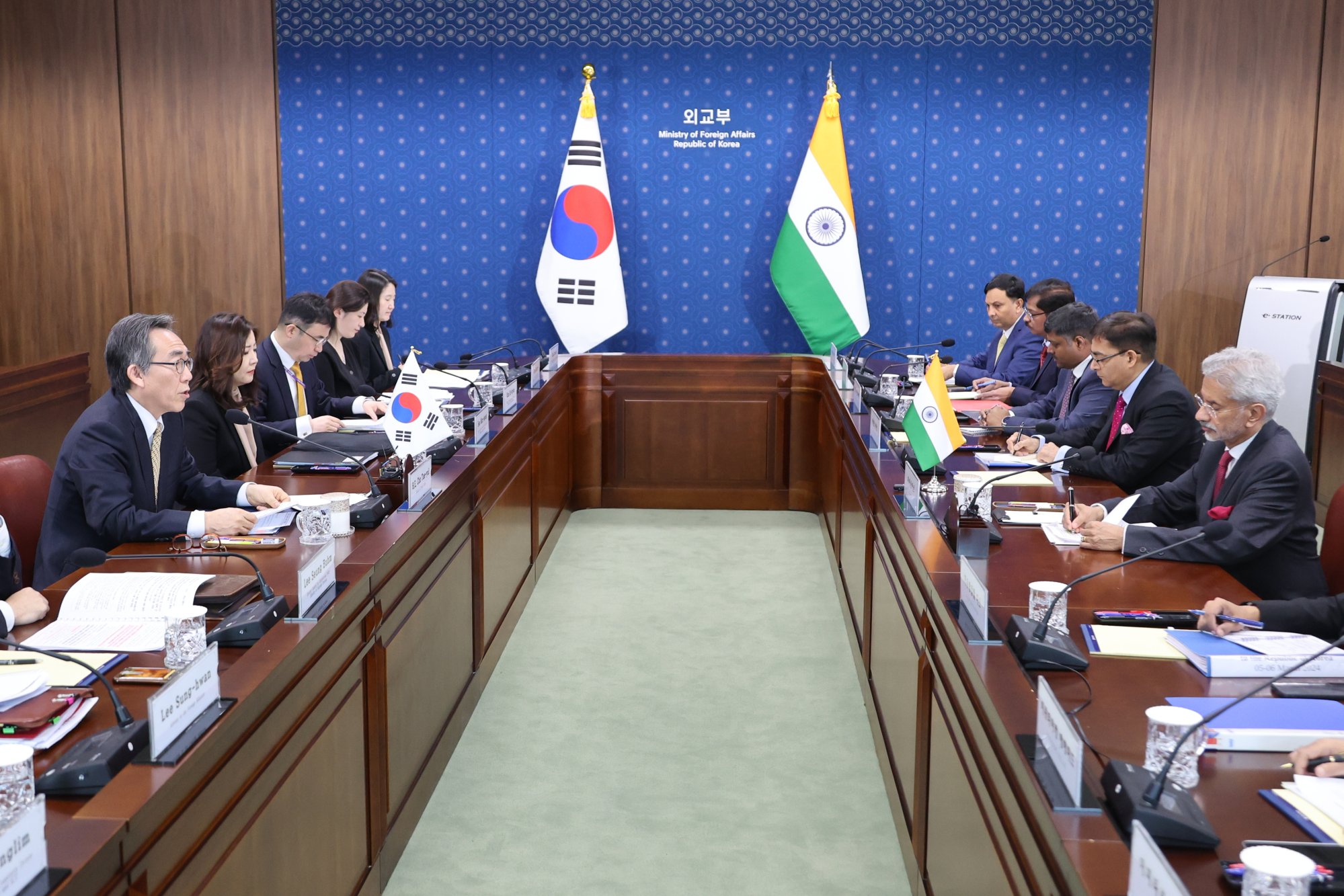“There’s always been this hurdle in shaping a stable security architecture where Japan and South Korea [are] not able to work together because of historical sensitivities. India perhaps is one country that can visibly take this trilateral cooperation forward,” said Pant, the Vice-President of Studies and Foreign Policy at the Observer Research Foundation in Delhi.
During the 10th India-South Korea Joint Commission Meeting (JCM) in Seoul last Wednesday, Jaishankar stressed the shared stakes of both countries in the Indo-Pacific region.
Co-chairing the meeting with his counterpart Cho Tae-yul, Jaishankar highlighted India’s interest in expanding cooperation beyond trade, defence and investment with South Korea, where a shift in China policy under President Yoon Suk-yeol has created room for countries such as India to play a more prominent role in the region.

“Japan especially places importance on its relations with India, which has nurtured its democracy and history and represents the Global South. In light of the increasingly severe security environment of today, we confirmed the need for our defence and security cooperation,” Kamikawa said.
Jaishankar, a distinguished diplomat of 38 years before he became India’s external affairs minister, is married to Kyoko Jaishankar, who is of Japanese origin. He speaks six languages, including conversational Japanese.
While a similar trilateral effort was proposed more than a decade ago, it never materialised. However, current circumstances indicate a renewed interest in establishing a trilateral alliance.
Strengthening multilateral mechanisms in the Indo-Pacific allows India to engage with regional partners to address common challenges and promote a rules-based order
Lakhvinder Singh, director of the Department of Peace and Security Studies at the Asia Institute in Seoul, identified Indo-Pacific maritime security, infrastructure cooperation, and critical and emerging technologies as potential pillars for a robust trilateral partnership.
“Strengthening multilateral mechanisms in the Indo-Pacific allows India to engage with regional partners to address common challenges and promote a rules-based order, indirectly countering China’s unilateral actions,” Singh said.
“While China may not be explicitly mentioned in Jaishankar’s trip’s agenda, the underlying objectives and discussions likely revolve around India’s efforts to enhance its strategic partnerships in the region and counterbalance Beijing’s growing influence through diplomatic engagement and collaboration with like-minded countries,” he added.

Complementing the Quad
India’s efforts to strengthen ties with Japan and South Korea are seen partly as a response to the perceived slow progress and effectiveness of the Quad, a strategic security initiative comprising Australia, Japan, India and the United States.
Analysts argue that these diplomatic engagements will act as a complementary force to the Quad rather than against it, forming a ‘Quad-Plus’ initiative.
Pant said that trilateral cooperation could become an expansion of the existing framework, with South Korea expressing early interest in joining a Quad-Plus initiative.
“From India’s point of view, the Quad is certainly moving at its own pace. All four members of the Quad are comfortable with it,” he said. “All the like-minded countries would welcome anything that enhances the ability of like-minded countries to engage with each other. A trilateral cooperation will only add to the existing framework which India is part of.”
Quad summit delay sparks fears over US commitment in Asia-Pacific
Quad summit delay sparks fears over US commitment in Asia-Pacific
Singh said while there might be signs of frustration with the slow progress of the Quad, a trilateral grouping of India, Japan and South Korea would help in plugging those gaps.
“India’s pursuit of trilateral cooperation with South Korea and Japan could be interpreted as a strategic response to perceived limitations or challenges in the Quad framework,” he said.
“India’s willingness to explore alternative partnerships highlights its proactive approach to advancing its strategic objectives in the Indo-Pacific region.”

